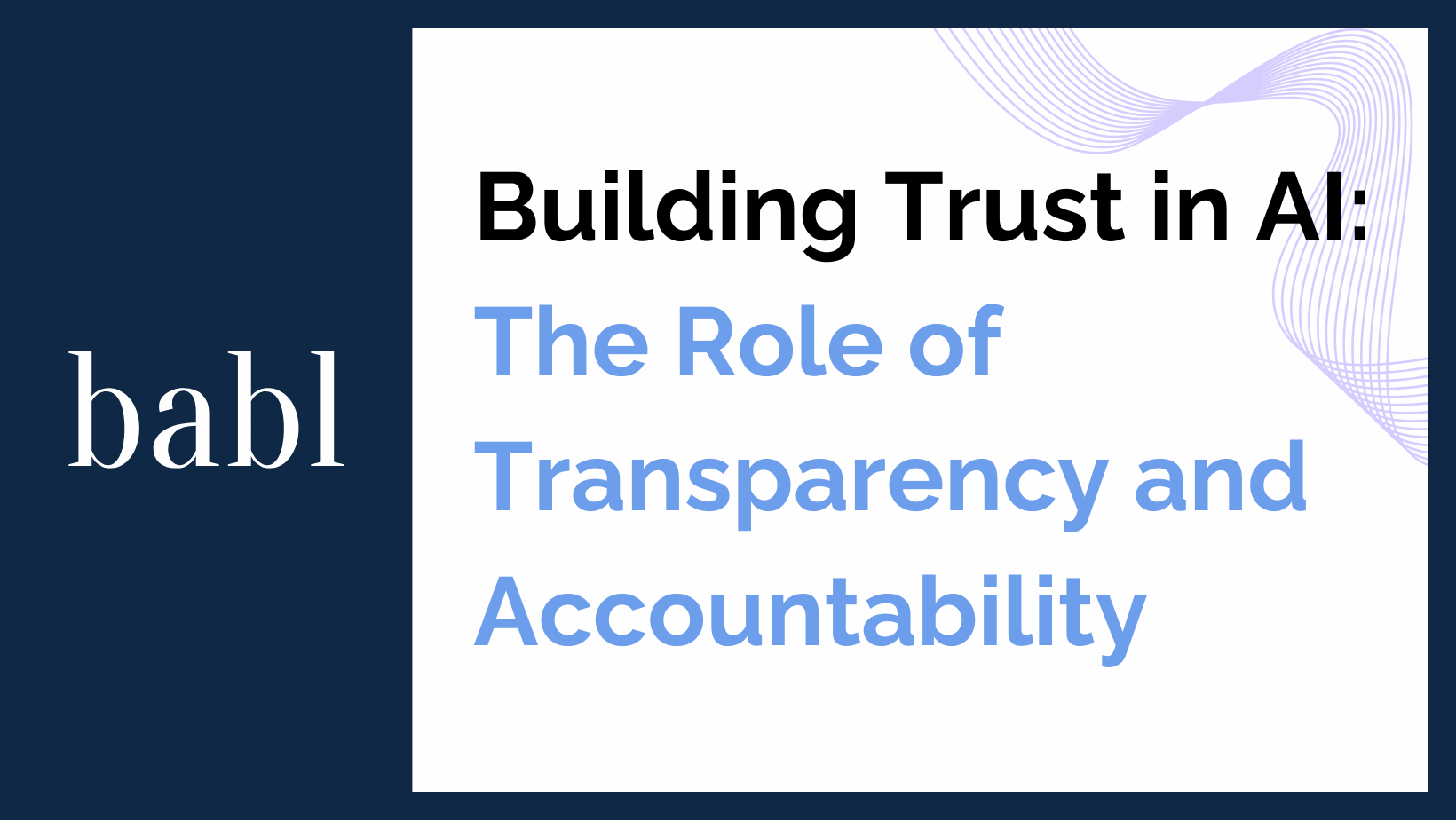In today’s digital landscape, artificial intelligence (AI) is revolutionizing industries and transforming the way businesses operate. However, with the growing adoption of AI comes an increased need for transparency and accountability. Building trust in AI systems is crucial not only for fostering consumer confidence but also for ensuring ethical practices and regulatory compliance. This blog post explores the importance of transparency and accountability in AI adoption, offering insights into best practices and highlighting potential pitfalls in communicating about AI governance.
The Importance of Transparency in AI Systems
Transparency in AI systems refers to the clarity and openness with which businesses communicate about how their AI technologies function, make decisions, and impact users. This includes disclosing the data sources, algorithms, and decision-making processes used by AI systems.
- Enhancing Consumer Trust:
Transparency is a key factor in building and maintaining consumer trust. When businesses clearly explain how their AI systems work and how they use personal data, they address potential concerns about privacy, bias, and misuse. This openness helps to reassure consumers that their information is being handled responsibly and ethically.
- Meeting Regulatory Requirements:
Transparency is not only a best practice but also a regulatory requirement in many jurisdictions. Regulations like the EU’s General Data Protection Regulation (GDPR) and the EU AI Act emphasize the need for transparency in AI systems, particularly in terms of data usage and decision-making processes. By adhering to these regulations, businesses can avoid legal repercussions and build a reputation for compliance and responsibility.
- Facilitating Informed Decision-Making:
Transparency empowers consumers and stakeholders to make informed decisions about their interactions with AI systems. Whether it’s choosing a service provider, making a purchase, or participating in an AI-driven program, transparency helps users understand the benefits and risks, fostering a sense of control and agency.
Accountability in AI: Ensuring Responsible Use
Accountability in AI involves holding businesses and AI developers responsible for the outcomes and impacts of their AI systems. This includes implementing mechanisms for oversight, ensuring compliance with ethical standards, and addressing any negative consequences that may arise.
- Establishing Clear Governance Frameworks:
Effective AI governance frameworks are essential for defining the roles and responsibilities of various stakeholders, including AI developers, business leaders, and regulatory bodies. These frameworks should outline the ethical standards and guidelines for AI development and deployment, ensuring that AI systems align with societal values and norms.
- Conducting Regular Audits and Assessments:
Regular audits and assessments of AI systems are crucial for maintaining accountability. These audits evaluate the performance, fairness, and compliance of AI systems, identifying any biases or errors that may exist. By conducting these assessments, businesses can proactively address issues and demonstrate their commitment to responsible AI practices.
- Implementing Feedback and Redress Mechanisms:
Accountability also involves providing channels for users and stakeholders to raise concerns, provide feedback, and seek redress if they are affected by AI systems. This includes setting up clear procedures for handling complaints, correcting errors, and compensating affected parties. These mechanisms not only enhance trust but also ensure that businesses are responsive and adaptive to the needs of their users.
Best Practices for Communicating AI Governance
Effective communication is key to building trust and ensuring transparency and accountability in AI systems. Here are some best practices for businesses to consider:
- Use Clear and Accessible Language:
Avoid technical jargon and use clear, straightforward language when explaining AI systems and their impacts. This makes information accessible to a broader audience, including those who may not have technical expertise.
- Provide Detailed Documentation:
Offer detailed documentation about AI systems, including information on data sources, algorithms, and decision-making processes. This documentation should be readily available to consumers, stakeholders, and regulatory bodies.
- Be Proactive in Communication:
Don’t wait for concerns or issues to arise before communicating about AI governance. Be proactive in sharing information about the measures taken to ensure transparency, accountability, and ethical practices. Regular updates and open communication channels can help build ongoing trust.
- Engage with Stakeholders:
Engage with a diverse range of stakeholders, including consumers, employees, industry experts, and advocacy groups. This engagement can provide valuable insights into potential concerns and help businesses refine their AI governance strategies.
Conclusion: The Path Forward
As AI continues to evolve and integrate into various aspects of business and society, the importance of transparency and accountability cannot be overstated. Businesses that prioritize these values not only foster trust and confidence among their users but also position themselves as leaders in ethical AI adoption. By implementing robust governance frameworks, conducting regular audits, and engaging in open communication, businesses can navigate the complexities of AI adoption and build a strong foundation for long-term success.
In summary, transparency and accountability are not just regulatory requirements or ethical imperatives—they are strategic advantages that can set businesses apart in a competitive landscape. As the field of AI grows, so too will the expectations for responsible and transparent practices. Businesses that embrace these principles will be better equipped to build trust, mitigate risks, and capitalize on the transformative potential of AI.
Need Help?
If you want to have a competitive edge when it comes to AI regulations and laws, don’t hesitate to reach out to BABL AI. Their team of Audit Experts can provide valuable insights on implementing AI.





